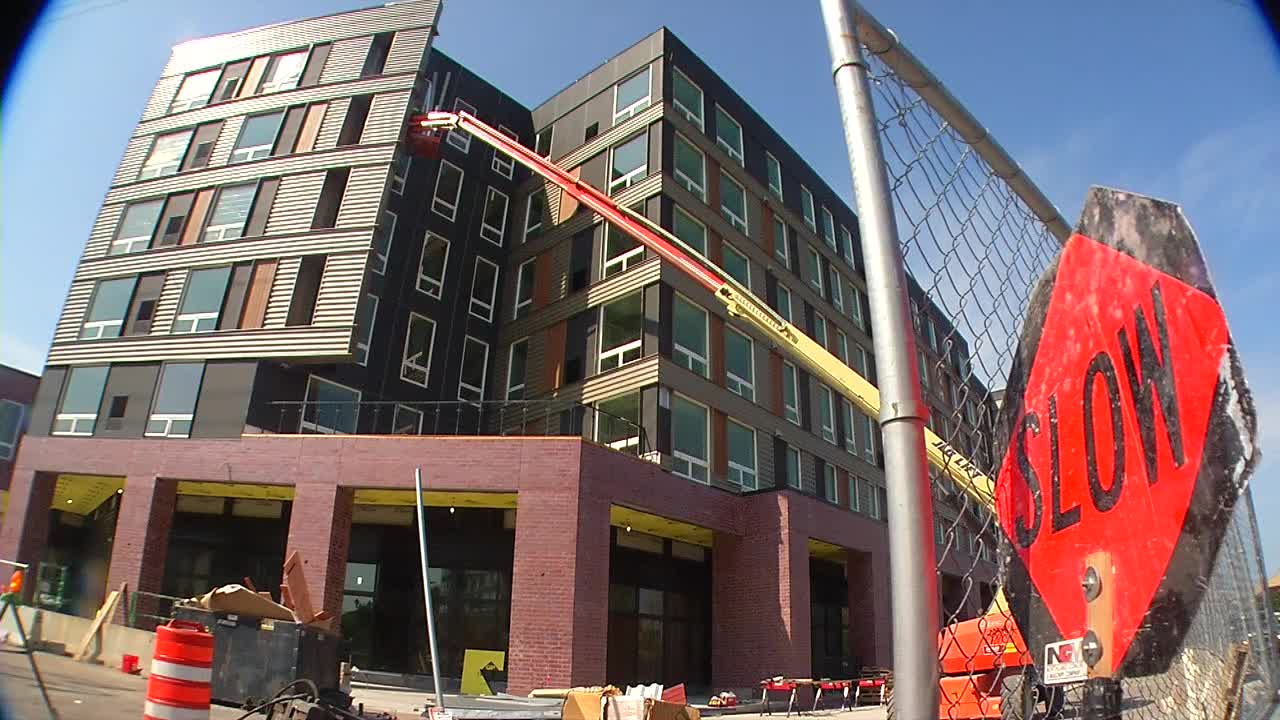Apartment in Dinkytown sued for alleged “bait-and-switch” scheme

Identity Dinkytown remains under construction as U of M students return for the fall semester. (KSTP)
The company that owns an apartment building still under construction near the University of Minnesota campus is being sued by students for an alleged “bait-and-switch” scheme.
Identity Dinkytown, which is owned by CA Student Living Dinkytown II, LLC, sits unfinished on 15th Avenue Southeast in Dinkytown.
The landlord of the apartment complex is accused of concealing information from future tenants by “claiming ignorance of the expected construction completion date.”
The complaint, filed on Aug. 18, asks the court to void the student’s leases, require CA Student Living Dinkytown II, LLC, to pay the student’s attorney and legal fees, and award the students any other relief the court finds fitting.
According to the complaint, the landlord for Identity Dinkytown has not received any official certificates of occupancy. A certificate of occupancy is required to house people in Minnesota. The complaint alleges that the building will remain under construction long after the certificate is received, as construction is behind.
Additionally, the complaint states that under the terms of Identity Dinkytown’s lease, payment for the first month’s rent was due on Aug. 1. A day later, on Aug. 2, the students say the landlord for Identity Dinkytown told the tenants that the apartment would not be move-in ready prior to the start of the fall semester — without providing an explanation.
Identity Dinkytown offered students who could not move in on their expected date $150 per day in gift cards and rent abatement or $80 per day in gift cards and housing in a hotel, but with this option, rent must be regularly paid to the apartment complex.
A spokesperson who works with Identity Dinkytown said, “We cannot comment on any pending litigation. We understand that the delay is disappointing and inconvenient for students. We want students’ experience with Identity Dinkytown to be seamless and this isn’t how we wanted to start our journey together. We are focused on getting doors opened and students moved in as quickly as possible and providing students with regular updates until then.”
READ THE LAWSUIT HERE: